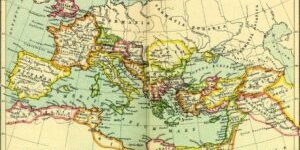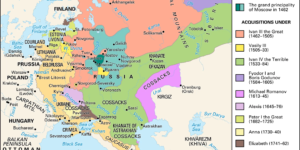Organic!
No Comments yet This is a diatribe written for the benefit of those of you who occasionally suffer from bad consciences because you grow roses.
This is a diatribe written for the benefit of those of you who occasionally suffer from bad consciences because you grow roses.
When I met Gerhard Verdoorn he was the Executive Director of Birdlife South Africa. We sat together through a long day devoted to the presentation of the outcomes of research into the harm caused to the environment by pesticides (including fungicides – biologists often don’t discriminate between the two), and at the end of the day, looking for helpful advice, I asked him what he thought I should spray my roses with. He barked one word in answer: “Roundup!”
Given the facts that roses are exotics in the southern hemisphere, that they will not grow down here unless you fertilise and spray them, that fertilisers and sprays undoubtedly harm the environment, that the environment is in trouble and needs to be cosseted, and that global warming is going on the one hand to parch our lands (through chronic droughts) and on the other hand to drown them (through raising the level of the seas), Professor Verdoorn’s response to me would seem to be fully justified. But it only SEEMS to be justified. In reality, it was either witty or rude, depending on your frame of mind at the time, but not at all justified. There are about seven billion people in the world. If we didn’t use fertilisers, insecticides and fungicides, we could feed about four billion of them.
If we took Gerhard Verdoorn’s advice seriously we would kill about three out of every seven people alive today, which would seem to many of us to be a greater evil than spraying our gardens and crops with insecticides. We need to use insecticides and fertilisers in order to be able to feed the world with food for the body, and if you accept the premise that man does not live by bread alone, we need to use insecticides and fertilisers also to produce what life is all about on a full stomach, which in your world and mine is the creation of beauty, which for our purposes means growing roses. What to do, then, about the need to preserve the environment? Is there an insuperable contradiction between our desire to save the planet and our desire to serve our physical and aesthetic/spiritual appetites? I think not. Such contradictions exist only in the minds of fundamentalists. I think that a really useful compromise can be reached, which involves the avoidance of unnecessary fertilising and spraying. I now spray reactively instead of by rote, and that seems to work. And I fertilise with a small monthly handful of a suitably balanced fertiliser appropriate to the particular season of the year, and that seems to work too. The soil in our garden is rich with earthworms. Our garden has roses in it, but it also has bees and many other insects in it, and masses of birds. At times, living at home is like living inside an aviary. So my conscience is clear.
Note that I don’t react (except by feeling a bit peeved) to the advice one hears so often today to go ‘organic’ – to grow garlic or marigolds, for instance, round the rose bushes to keep the insects away. Garlic and marigolds don’t in fact keep the insects away, and in any event this use of the word ‘organic’ is just a gimmick. I really do believe that people in marketing call products ‘organic’ to persuade the gullible general public to buy inferior products while paying more for them than they would for better stuff. As a child I was the victim of my mother’s passion for whatever the current gimmick in food happened to be. I was fed on spinach, tomatoes, carrots, cod liver oil, and so forth. Do you remember those days? My Mom, bless her, didn’t have a clue. She believed whatever she was told. In other words, she was very modern. If you ask people today what they actually mean when they talk about ‘organic vegetables,’ for instance, they will say that they are vegetables grown without the use of chemicals. But, you say, this can’t be. The vegetables themselves are in fact chemicals, the soil consists only of chemicals, people are chemicals (being made up almost entirely of water, which is a compound of hydrogen and oxygen, which are two chemicals). Get rid of chemicals and you get rid of the world! If the people you’re talking to get the point they will say that you’ve misunderstood; that they meant vegetables grown without the use of synthetic chemicals. But, you answer, all synthetics begin as natural products.
 You can’t synthesise something out of nothing. Synthesising things is like cooking. When you cook you start with a lot of raw materials and make a good meal out of them. You wouldn’t suggest that people should eat only raw stuff, would you? How could you eat a potato? What would you do with soya? The point about synthetics is that they make it possible for us to isolate what we want from natural products, to bulk them up, to transport them, and to use them to feed the world. Take Cypermethrin, for example. (The person you’re talking to pulls a face.) Cypermethrin is produced naturally by chrysanthemums, which is why insects don’t eat chrysanthemums. But you can’t extract enough from actual chrysanthemums to use as a general insecticide. And if you tried you’d wipe out all the chrysanthemums in the world. So you have to synthesise Cypermethrin instead, from whatever natural products you may need – things like oil and rape seed and salt, perhaps. No, says the person you’re talking to. She wants you to use only organic things. Oil is terrible! she says. You tell her that oil is organic. The work ‘organic’ means carbon-based, which is what oil very obviously is. It’s a derivative of fossilised trees. Synthetics made from organics are obviously still organics. The person you were talking to has turned her back on you, pretending to need another biscuit to go with her (organic) tea, and has started a conversation with the hostess of the day, who doesn’t grow roses. You go to the nearest computer, Google for the word ‘organic,’ and print out for her benefit what Wiki has to say on the subject:
You can’t synthesise something out of nothing. Synthesising things is like cooking. When you cook you start with a lot of raw materials and make a good meal out of them. You wouldn’t suggest that people should eat only raw stuff, would you? How could you eat a potato? What would you do with soya? The point about synthetics is that they make it possible for us to isolate what we want from natural products, to bulk them up, to transport them, and to use them to feed the world. Take Cypermethrin, for example. (The person you’re talking to pulls a face.) Cypermethrin is produced naturally by chrysanthemums, which is why insects don’t eat chrysanthemums. But you can’t extract enough from actual chrysanthemums to use as a general insecticide. And if you tried you’d wipe out all the chrysanthemums in the world. So you have to synthesise Cypermethrin instead, from whatever natural products you may need – things like oil and rape seed and salt, perhaps. No, says the person you’re talking to. She wants you to use only organic things. Oil is terrible! she says. You tell her that oil is organic. The work ‘organic’ means carbon-based, which is what oil very obviously is. It’s a derivative of fossilised trees. Synthetics made from organics are obviously still organics. The person you were talking to has turned her back on you, pretending to need another biscuit to go with her (organic) tea, and has started a conversation with the hostess of the day, who doesn’t grow roses. You go to the nearest computer, Google for the word ‘organic,’ and print out for her benefit what Wiki has to say on the subject:
Organic foods are made in a way that limits or excludes the use of synthetic materials during production. For the vast majority of human history, agriculture can be described as organic; only during the 20th century was a large supply of new synthetic chemicals introduced to the food supply. This more recent style of production is referred to as ‘conventional.’ Under organic production, the use of conventional non-organic pesticides, insecticides and herbicides is greatly restricted and saved as a last resort. However, contrary to popular belief, certain non-organic fertilisers are still used. … Most certifications [of organic food] allow some chemicals [!!!] and pesticides to be used.
You give the sheet of paper to the person you were talking to. She smiles at you sweetly but vaguely, puts it down on the tea table, resumes her conversation with the hostess, and leaves the event without having read it or taken it with her.
You’re not going to win with that sort of person because they have what amounts to a religious belief in the vague ideas and empty fashionable words they use, and they won’t allow you to shatter their faith – they’re unwitting fundamentalists – but at least you have a balanced view of these things and can grow roses and be easy in yourself. You will know that you are choosing to use ‘chemicals’ that biodegrade quickly and that target what you want them to deal with, rather than broad spectrum chemicals (if you want to kill greenfly you don’t need to kill bees at the same time). You are growing beautiful roses, but you are also preserving your patch of the world as a healthy, bio-diverse environment. Well done, you!
About the Author
Professor Alan Brimer, BA, UED (UCT), BA Hons, MA, D.Litt et Phil (UPE), was born in Cape Town in 1938, and moved to Beaufort West in 1944. In 1947 he went back to Cape Town and became a boarder at St. George’s Grammar School and a choirboy in St. George’s Cathedral, where he became the assistant organist in 1950, at the age of 12. He has played church organs ever since. Two years later his parents bought a house; he came home from boarding school, and was given the gardening to do as his share of the family’s household duties. He soon found the pleasure of growing roses, and has grown them off and on ever since.
Aged 14 he became musical director of the Camps Bay Operatic and Dramatic Society, and conducted a full set of performances of Die Fledermaus, with an orchestra in the pit, wearing tailcoat many sizes too large for him. He continued to conduct shows for the next 16 years. At UCT he became Captain of the Weightlifting Club, and added competitive weightlifting to his other sports, tennis, rugby and squash. He still plays squash whenever he can find the time.
After graduating he took a teaching job (English and Maths) at Grey High School, Port Elizabeth, where he became Vice Principal at the age of 30. Then he took a lectureship in English at the University of Port Elizabeth, which he left in 1977 to become Professor and Head of the Department of English at the University of Durban-Westville.
He retired as the Academic Registrar of the university, and currently works as a consultant in higher education. This has involved him in working for various public and private higher education institutions, the CHE and SANPAD. He also edits academic publications, theses and dissertations.
His doctoral thesis was about T.S. Eliot’s The Waste Land and he has since published articles on medieval poetry, Shakespeare, Eliot, and literary theory. At the moment he has about 500 roses in his garden, writes about roses every so often, and tries to popularise rose growing in KZN.
You May Also Like
Comments
Leave a Reply








